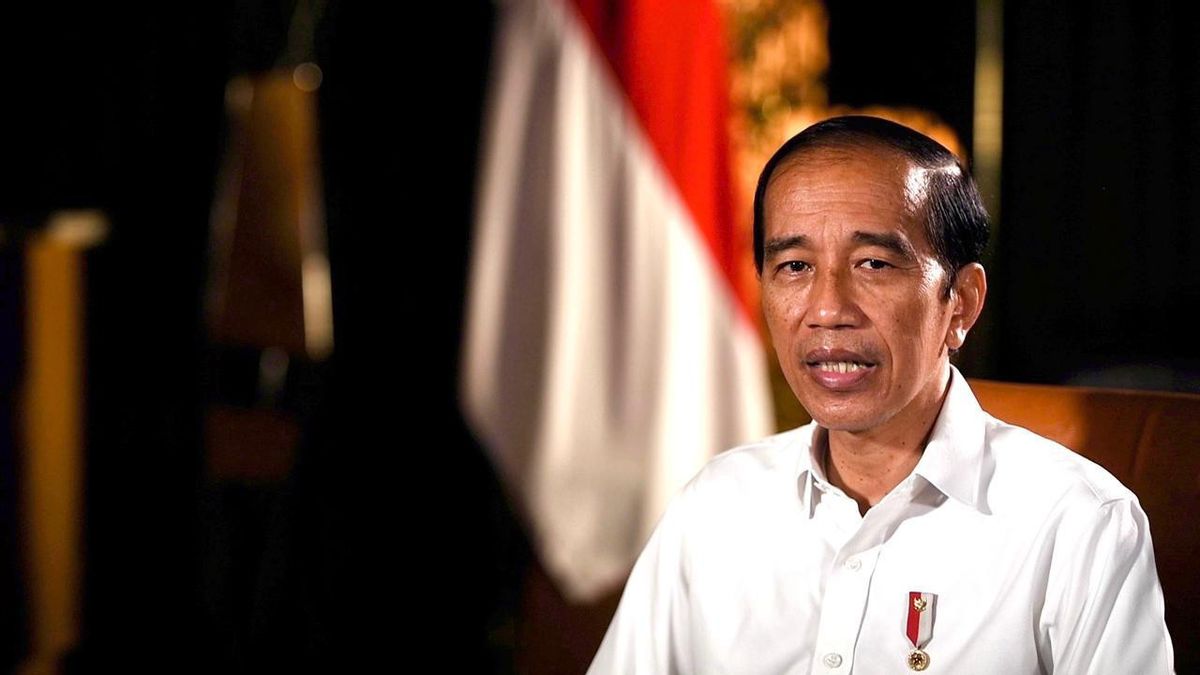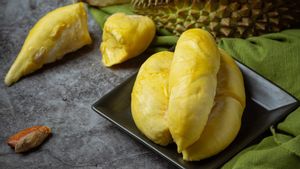JAKARTA - President Joko Widodo (Jokowi) has prohibited all people, without exception, going home on the Eid Al-Fitr 2021 holiday for the sake of family safety. There are a number of reasons why this ban was imposed by the government, including the frequent increase in the number of COVID-19 cases during long holidays.
Through a video with a duration of less than seven minutes, the former Governor of DKI Jakarta understands that people miss their families in their hometowns, especially during the momentum of Eid Al-Fitr. However, the ban on going home is stipulated for the sake of mutual safety, including those in the village.
"I understand we miss our relatives at a time like this, especially in Eid. But let's prioritize safety together without going back to our hometowns," said Jokowi in a video uploaded to the Presidential Secretariat YouTube account, Friday, April 16.
He then explained a number of reasons why the government finally decided to ban homecoming. One of them is the experience of a long holiday which is a momentum to increase COVID-19 cases in Indonesia.
According to the data read by Jokowi, there were at least four long holidays that significantly affected the addition of COVID-19 cases. First, was during the Eid Al-Fitr holiday last year, where there was an increase in daily cases of up to 93 percent and cases of death by 66 percent.
"The second increase in COVID cases occurred during the long holiday on August 20-23, 2020. Which resulted in an increase of up to 119 percent and the weekly death rate to increase by 57 percent," he said.
Next, the long holidays from 28 October to 1 November 2020 also contributed to an increase in COVID-19 cases by 95 percent and an increase in the weekly death rate of up to 75 percent.
"Finally, fourthly, there was an increase during holidays at the end of December 24 to January 3, 2021 resulting in an increase in daily cases reaching 78 percent and an increase in weekly deaths of up to 46 percent," Jokowi explained.
In addition, the government has issued a ban on going home to protect the trend of active cases in Indonesia which has been declining over the past two months. "(Active cases, red) decreased from 176,672 cases on February 5, 2021 and on April 15, 2021 to 108,032 cases," he said.
Likewise with daily cases which are now decreasing and the recovery trend is increasing. "If 1 March 2021 as many as 1,151,915 recovered or 85.88 percent of the total cases, in April 15 it will increase to 1,438,254 patients recovered or reach 90.5 percent of total cases," said the former Mayor of Solo.
With these positive results, the government is trying to maintain this momentum. "For this reason, this time the government has decided to prohibit homecoming for ASN, TNI and Polri, BUMN employees, private employees and all people," he said.
Forcing homecoming can cause new spikesProfessor of the Faculty of Public Health, University of Indonesia (UI) Hasbullah Thabrani, reminded that a potential spike in COVID-19 cases can occur if there is mobility. Because this virus transmission occurs between humans at close range and not through intermediaries such as bird flu.
"So, the best solution is to make the distance or contact between people as little as possible. Well, going home has the potential to create crowds both during the trip and in the hometown," Hasbullah said as quoted from a written statement by KPCPEN, Thursday, April 15.
The cause of transmission when it occurs when people gather to stay in touch. Most people, he said, often forget to keep their distance or apply health protocols when doing these activities.
"So if this is not controlled, it will lead to new cases," he said.
Hasbullah said that the community does not need to force homecoming in the midst of a pandemic. Moreover, currently technology can be an alternative to make friendship. "It can be done by telephone or video call at any time," he said.
He also spoke about the opinion that going home could move the regional economy in the midst of a pandemic. According to him, apart from returning to his hometown to celebrate Eid, there are other ways that can be done.
One of them is diverting the cost of going home, which is not small in value, to be invested in the region, such as buying land. In addition, the cost of going home can also be donated to help orphanages or other educational institutions.
"So the homecoming fee can be used for more productive things," said Hasbullah.
If you also want to give money to relatives in your hometown, people can take advantage of banking services. "So, the money can still be spent in the hometown and the economy in the regions continues without having to go home," he explained.
Police measures prevent travelersHead of the Traffic Corps (Kakorlantas) of the National Police, Inspector General Istiono, said that there were 333 Lebaran 2021 homecoming blocking posts on the main route, both the northern, central and southern routes.
"For the main route from Lampung to Bali, we built 333 insulating points," said Inspector General Istiono, in Cirebon, as reported by Antara, Wednesday, April 14.
Inspector General Istiono said that the isolation posts that were established were not only on the main route, but also on an alternative route or rats that were located at the regional border.
According to him, there are more blocking posts for Lebaran 2021 homecoming compared to last year's homecoming, which only had 146 blocking posts. "I confirm that we have evaluated these routes from last year's implementation and we will multiply them," he said.
He said that this Lebaran 2021 homecoming is predicted to be difficult, especially since public transportation is also being eliminated. For this reason, continued Inspector General Istiono, predicting that the travelers will use private vehicles, both cars and motorbikes.
"The problem is that all modes of transportation have been eliminated and all have switched to private vehicles. Therefore, the arterial route has become the foundation of both the Central and Southern routes," he concluded.
The English, Chinese, Japanese, Arabic, and French versions are automatically generated by the AI. So there may still be inaccuracies in translating, please always see Indonesian as our main language. (system supported by DigitalSiber.id)








